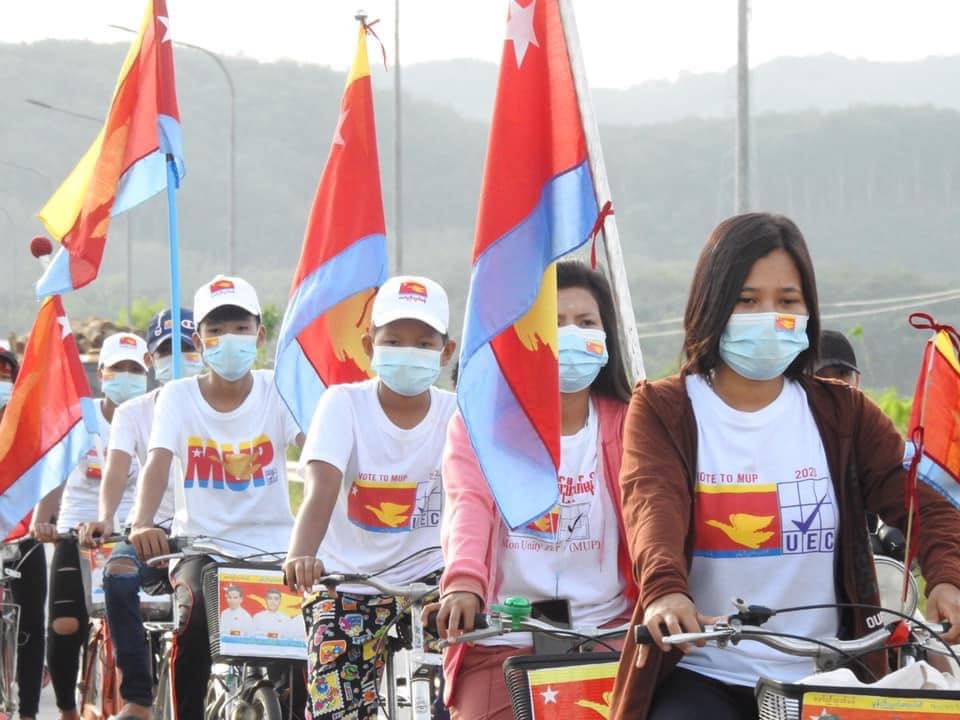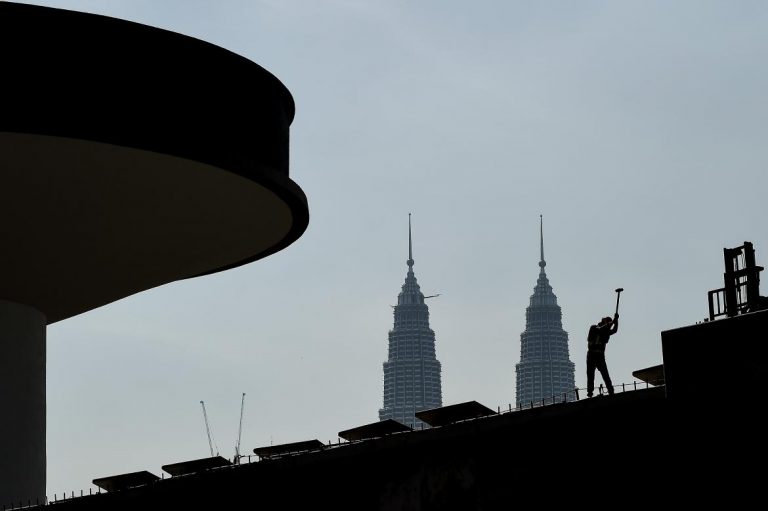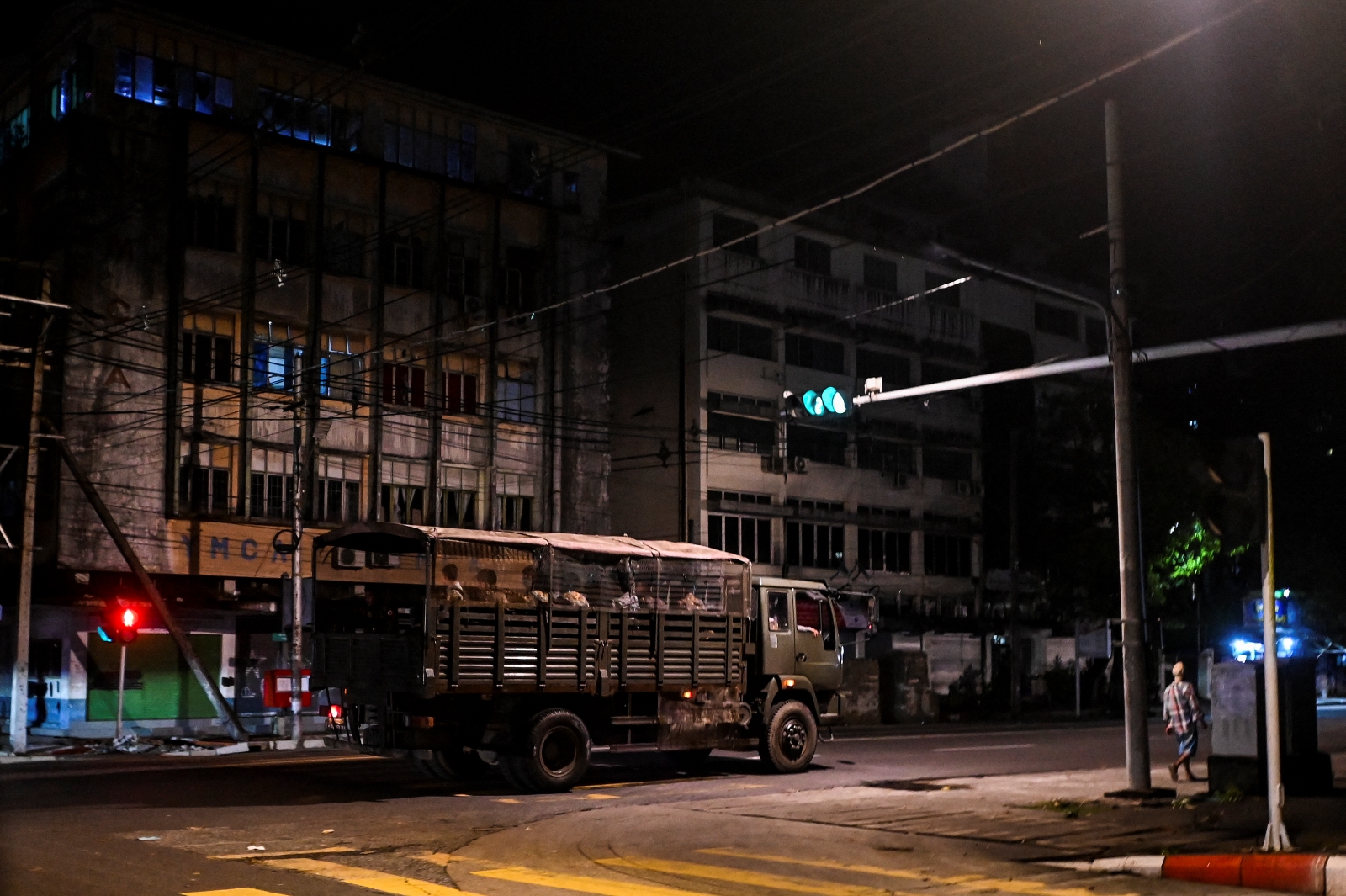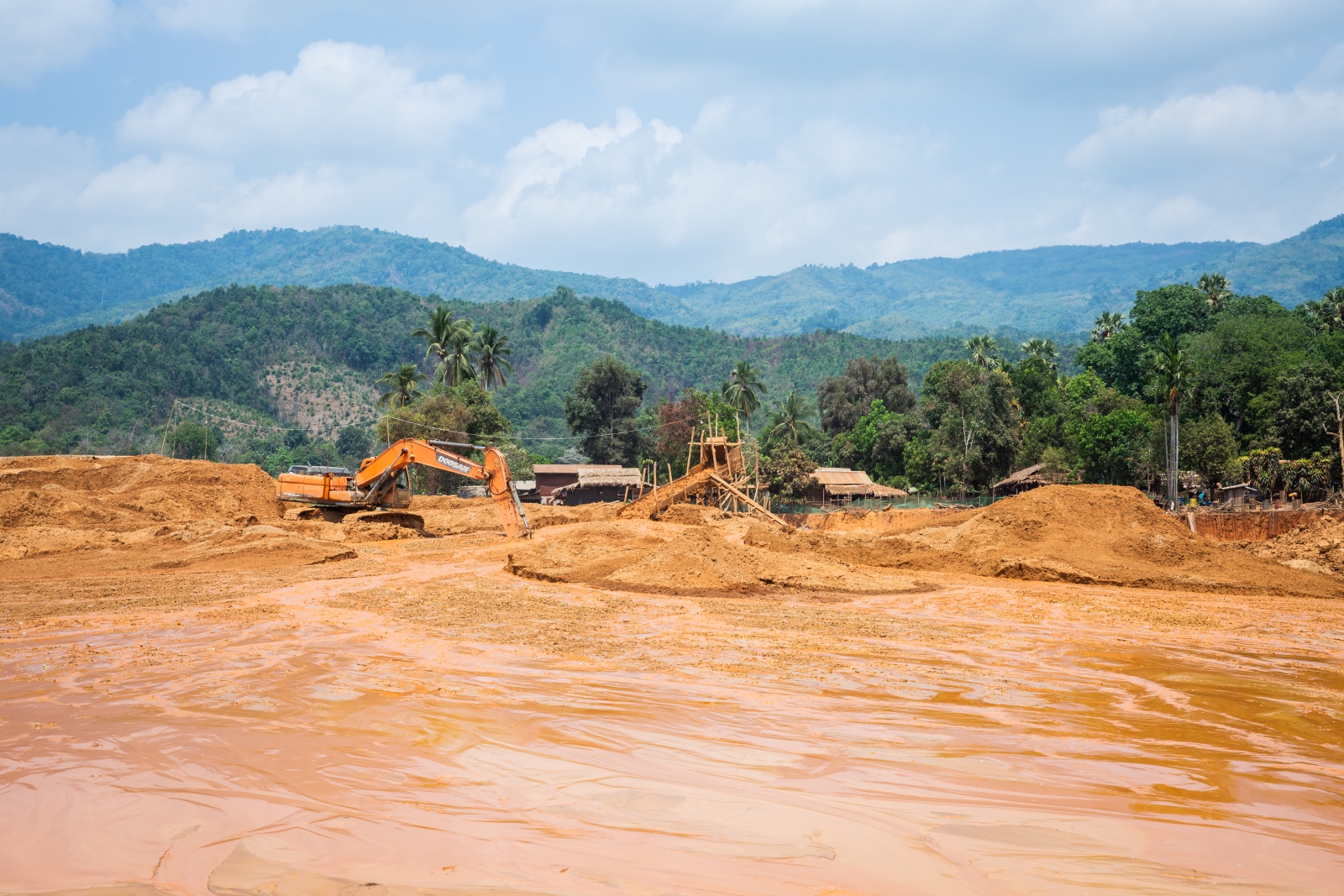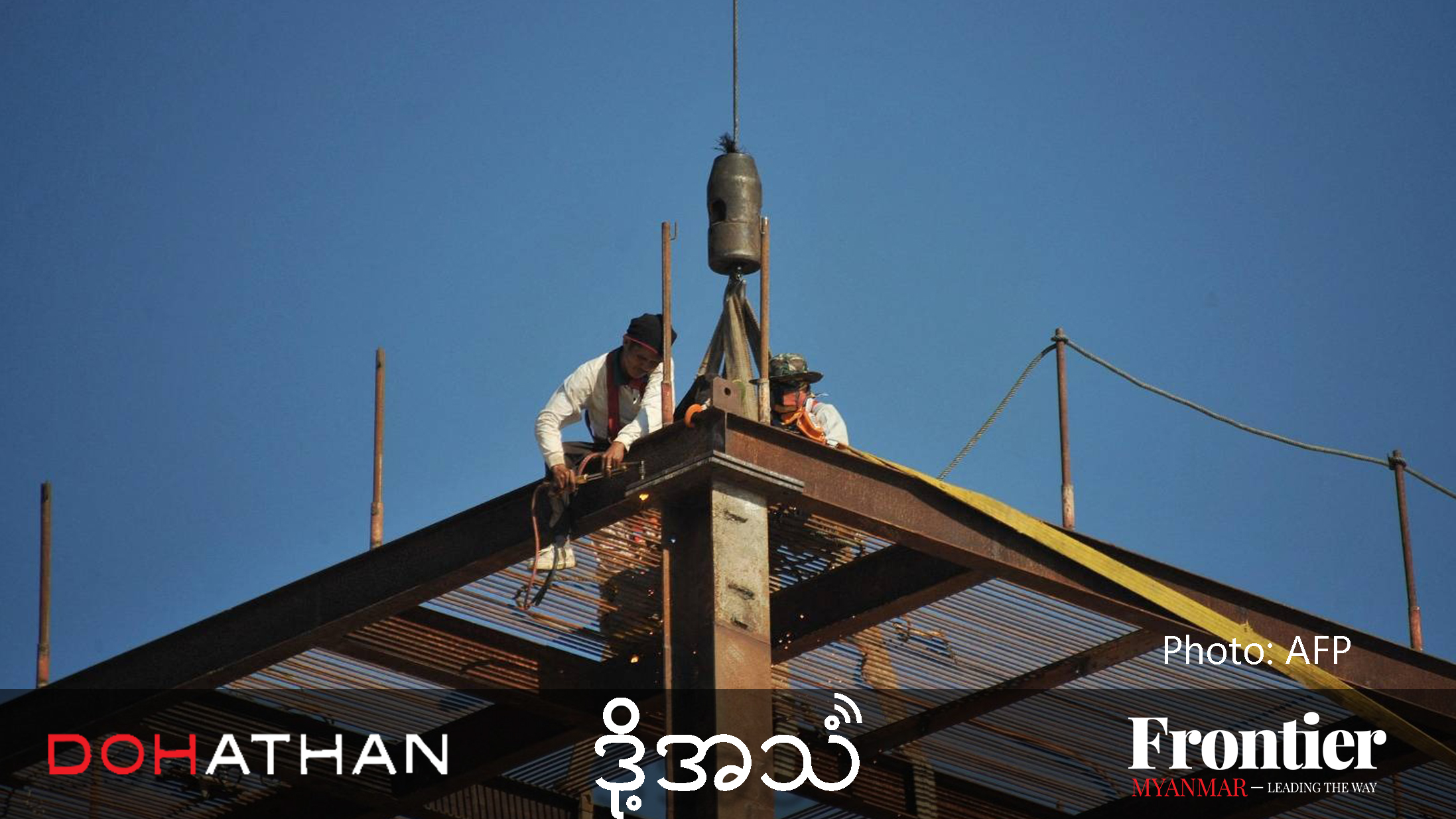Votes from Mon migrants in Thailand could deliver local wins to the MUP, but many migrants couldn’t register for overseas ballots or risk returning home to vote.
By NAW BETTY HAN | FRONTIER
Min Aye Chan, 43, arrived at the Myanmar embassy in Bangkok early on the morning of October 18, excited at the prospect of being able to cast an overseas vote for the first time.
The native of Mon State’s Ye Township had returned to Myanmar to cast his ballot back in 2015.
“I had hoped to return home to vote for the 2020 election, but that was before COVID-19. Quarantine would have caused problems with work, so I decided to register at the embassy for an [overseas] advance vote,” said Aye Chan, a garment factory supervisor who lives in Nonthaburi on Bangkok’s northern outskirts, about 20 kilometres from the embassy.
He arrived at the embassy at about 6.30am anticipating a large crowd; it was the last day migrants could vote in Thailand.
“About 100 people were queueing at the entrance to the embassy. Some seemed to have travelled long distances and others appeared to have slept rough nearby,” Aye Chan told Frontier by phone.
Aye Chan was one of almost 40,000 Myanmar nationals who registered to cast votes in Thailand, out of more than 120,000 expatriates globally – a significant increase on five years ago, when only 30,000 people registered globally to vote overseas, and about 22,000 actually voted.
However, given that Thailand hosts an estimated 3-4 million migrants from Myanmar, and only a fraction of that number is estimated to have returned home during the pandemic, it is clear that the vast majority of Myanmar nationals in the kingdom will have no say in this election. Civil society groups that helped migrants register for overseas ballots said the need to submit applications by mid-August had prevented more from being enfranchised, and that the limiting of voting to the embassy in Bangkok and the consulate Chiang Mai had made voting expensive and difficult for migrants dispersed across provincial areas of Thailand.
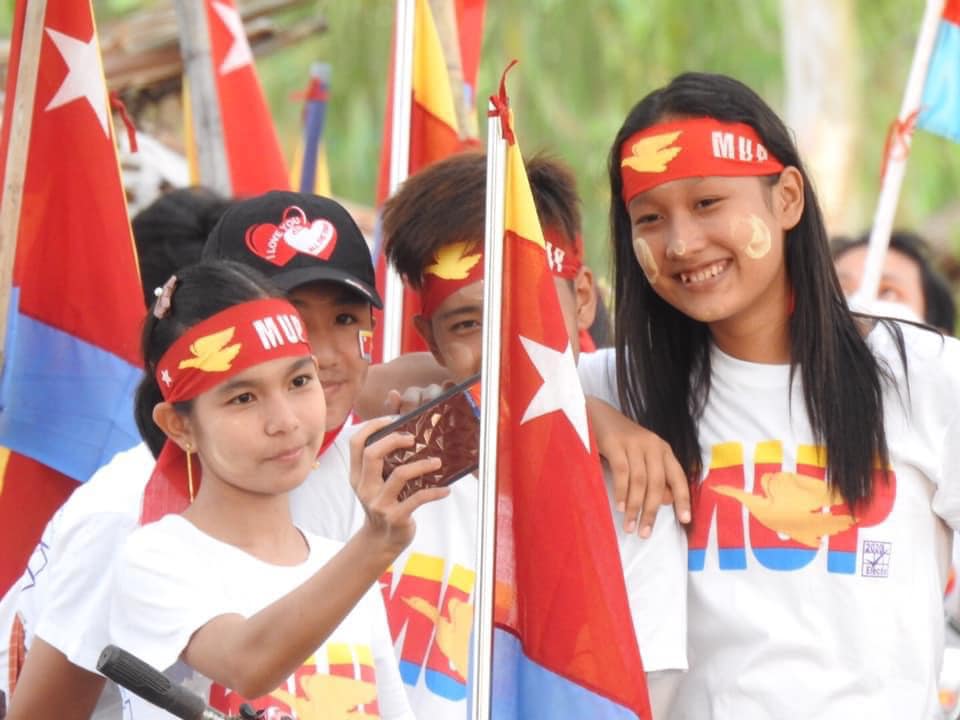
Although Myanmar’s official election day is November 8, overseas voting took place in advance. It began in Singapore on October 1; Russia, South Korea and Brunei on October 2; and Thailand and Japan on October 3. Voters were given between three and 18 days to castballots.
The Ministry of Foreign Affairs told Yangon-based outlet Mizzima in a October 22 report that turnout among overseas voters was almost 70 percent.
Overseas voters had to choose between candidates competing in their home township in Myanmar, and the ballots have been sent to the relevant township election sub-commission, to be counted alongside the votes cast in the township on election day.
Among the voters who registered in Thailand were many Mon migrant workers like Aye Chan, and they could prove decisive in certain races back in Mon State where an energised Mon base appears to be rallying behind the recently formed Mon Unity Party.
MUP secretary-1 Nai Layi Tama believed the votes of Mon people working in Thailand would play an important role in the party’s hopes of achieving victory.
“Mon people support our party very much and we hope to win in a landside in [the constituencies were are contesting in], but to do that we’ll need the support of Mon people overseas too,” he said.
“I saw on social media that Mon people are casting advance votes at embassies and posting on Facebook that they have fulfilled their responsibility to vote. I have also heard that some groups of migrants arrived at quarantine centres from the Thai border so they could cast their vote on November 8. I really appreciate their support for the MUP and I can promise them we will not let them down if we are elected.”
U Tin Ngwe, a 52-year-old native of Mon State’s Mawlamyine Township, has since 2009 lived in Hat Yai in southern Thailand, where he works at a garment factory that employs about 100 other Myanmar citizens. He said some of his friends had to re-register with the embassy after their initial application was rejected, but they were eventually able to vote.
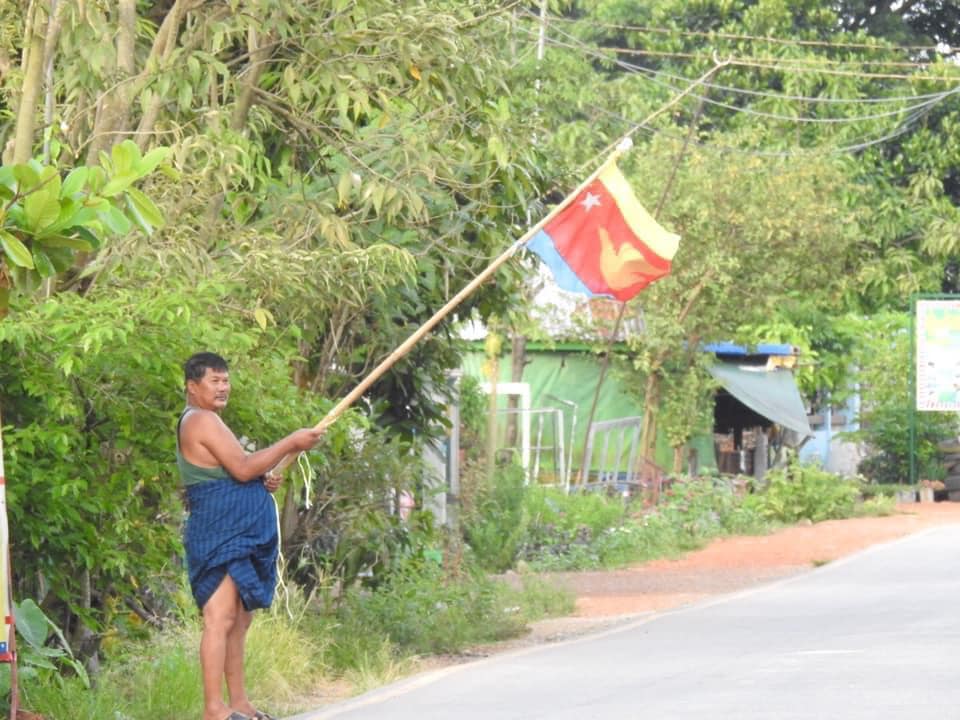
“They had language difficulties or forgot to attach documents,” he said.
He said some migrant workers though were not aware of the embassy’s announcements and did not register for an overseas vote. Some cannot write well and could not complete the application form. Others did not bother applying because they live far from Bangkok and could not afford the time or cost of travelling to the Thai capital to vote. Hat Yai is about 13 hours by bus or train from Bangkok.
“There is a daily flight from Hat Yai to Bangkok but it is expensive (between US$120 and $190). However, we had to go to Bangkok to be tested for COVID-19 so we could travel between different regions in Thailand,” he said. “We had to take leave, which some workers did not want to do. They worried their pay would be cut.”
Tin Ngwe said he and his friends voted for the Mon Unity Party because they are ethnic Mon and from Mon State.
“I am afraid that our MUP will not get enough votes because of the difficulties that have prevented some migrant workers from casting votes,” he told Frontier.
Tin Ngwe heard from relatives back home about Civic Action for Free and Fair Elections, a volunteer group that helped migrant workers to register for overseas voting and arranged transport to Bangkok.
The Mon State-based group is supported by local civil society organisations and is also active neighbouring Kayin State and Tanintharyi Region, as well as in Thailand. Its work includes raising awareness about the importance of free and fair elections and advocating for the voting rights of Myanmar migrant workers in Thailand.
Tin Ngwe said CAFFE helped him and his colleagues register for an overseas vote.
“The staff at CAFFE helped us to register at the embassy and also connected us with donors, who helped with our transport costs,” he said.
CAFFE executive director Nai Kasauh Mon told Frontier from his Bangkok office on October 18 that the group had helped to arrange voting for about 5,000 migrant workers across 13 Thai provinces, including Bangkok, Phetchaburi, Chumphon, Surat Thani, Phuket, Phang-nga and Hat Yai.
“We made a hotline for people to ask about voting in Thailand. As soon as they called us and asked us for help, we supported their registration process,” he said.
“The registration period was very short. It wasn’t long enough to register all migrant workers,” Kasauh Mon said, referring to the mid-August deadline. He added that few migrant workers understood the process and that CAFFE did not have enough staff to raise awareness in all provinces.
He guessed most ethnic Mon migrant workers from Mon supported the MUP.
“I heard that many of the migrant workers we helped are MUP supporters who intended to vote for it,” he said.
The MUP, which was formed by members of the Mon National Party and All Mon Region Democracy Party, is fielding 65 candidates in the November 8 election, including in all constituencies in Mon State, 11 in Tanintharyi Region, five in Yangon Region, and two in Bago Region.
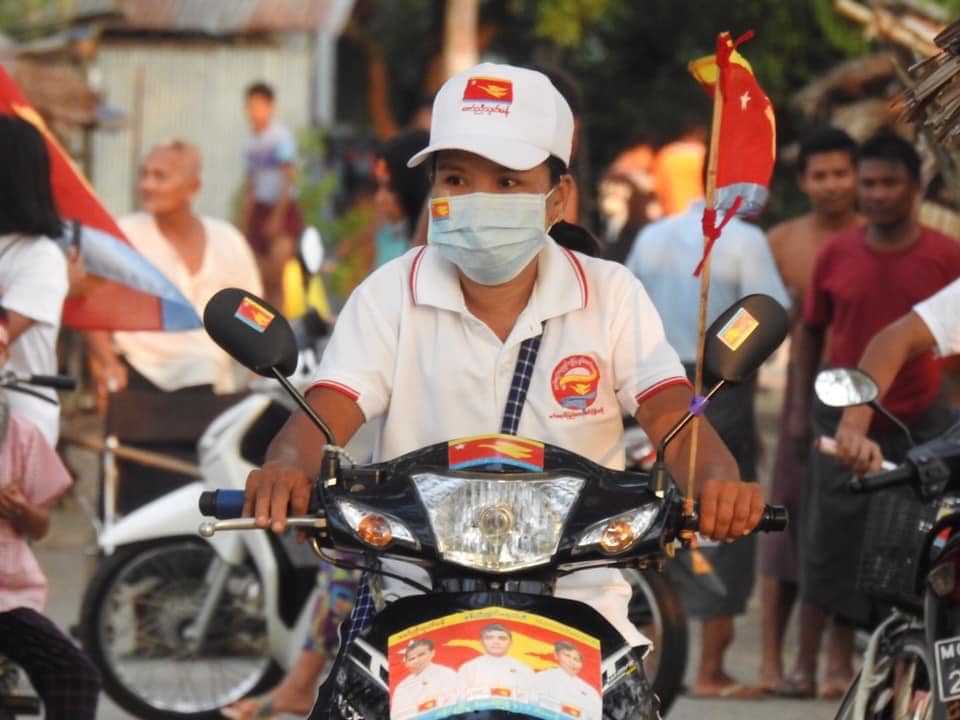
Kasauh Mon said that although the embassy had said nearly 40,000 people successfully registered to cast an overseas vote, there were more than 400,000 documented migrant workers in Thailand who identify as Mon, and about 100,000 more who were undocumented and working illegally.
“Fewer than five percent of [Mon] migrants in Thailand could cast votes,” he estimated. “The others have lost that opportunity. The only way they can exercise their right to vote is to return to their hometowns and vote on November 8.”
Tens of thousands of migrant workers returned home to vote in 2015, but COVID-19 has made the journey back to Myanmar much more difficult and risky.
“If they return home they will be put under quarantine upon arrival and again when they return to Thailand, which could mean at least a month away from their work, and they don’t know if they’ll be paid during their absence,” Hat Yai-based factory worker Tin Ngwe said.
This will likely affect the vote for the MUP, he said.
Some Mon migrant workers in the border town of Mae Sot, opposite Myawaddy in Kayin State, have returned home to cast their ballot.
Ma Ya Min Thwe, 26, from Mon’s Mudon Township, said she and 50 friends in Mae Sot returned home on October 22. She’s taken 15 days unpaid leave to cover the time needed to quarantine before voting.
“We are happy to vote for the Mon Unity Party because we are Mon,” she told Frontier by phone. “We made arrangements to return home on Facebook because we are not from the same factory.”
Ya Min Thwe said she had heard that about 10,000 migrant workers had planned to return to their homes in Mon to vote (Frontier could not verify this figure). She was not sure which party or parties they supported but hoped it was the MUP.
However, the plans of many aspiring home voters were disrupted when the official border at Myawaddy-Mae Sot was closed from October 19 to 25 after two Myanmar truck drivers tested positive for COVID-19.
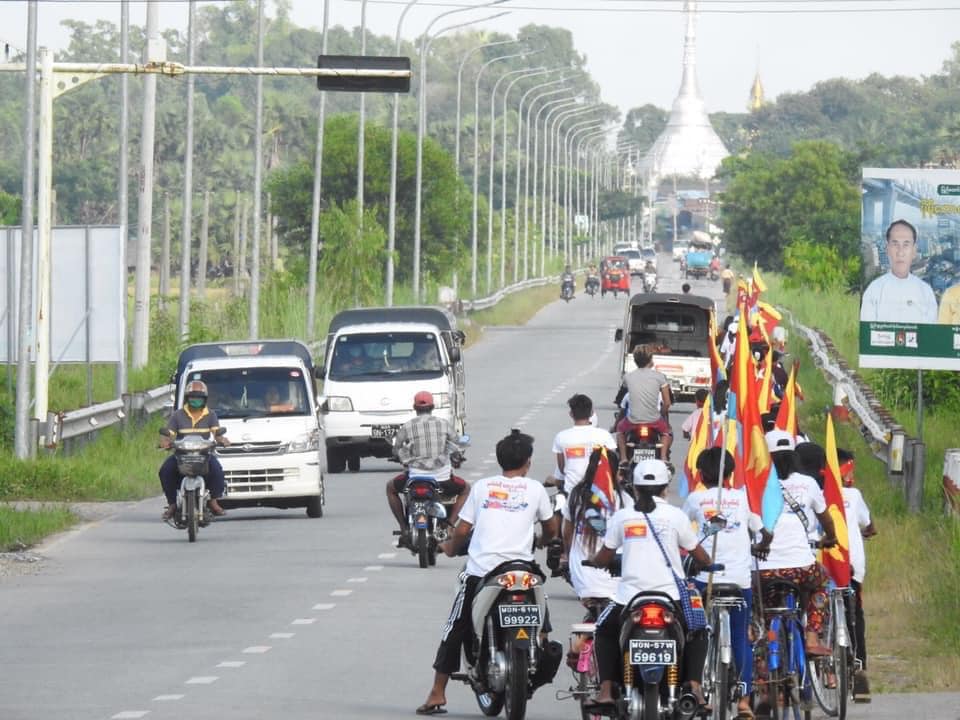
But even for those who make it back in time for the polls, continued uncertainty over travel and border closures during the pandemic may make them pay a heavy price for voting.
Ya Min Thwe is currently at a quarantine centre in Mudon until November 6. She will go back to Mae Sot as soon as she finishes voting, she said, but she is uncertain if her job will be there when she returns. She always worries that her return may be delayed by another border closure.
“We are afraid that we will not be able to enter Thailand after we vote on November 8. We have taken leave for only a limited time and a worry we’ll be sacked if we don’t return on time.”


